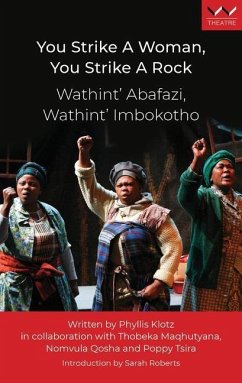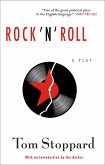You Strike a Woman, You Strike a Rock / Wathint' Abafazi, Wathint' Imbokotho is a bristling example of protest theatre making during the height of apartheid. Created in ensemble fashion in 1986 by director Phyllis Klotz in collaboration with performers Thobeka Maqhutyana, Nomvula Qosha and Poppy Tsira, this play stands as a contemporary South African classic. The play focuses on three central characters: Sdudla, Mambhele and Mampompo living and working in a Cape Town township trying to eke out a living in a racially, socially and economically unequal world. There are few work opportunities and there is a great deal of red tape to be self-sufficient. Men are glaringly absent from this world - working as cheap migrant labour in urban areas. Women have to undertake great risk to see their husbands and to try keep a semblance of family cohesiveness. Helicopters fly above and state security police surveil the area. The play shows how these women work miracles to ensure the survival and wellbeing of their families at all cost. Following the famous 1956 slogan of the South African woman's march against apartheid laws, this latest publication in 2021 is a testament to the contemporariness of this play. Its themes around gender activism and the need for gender parity remains as true today as it did fifty years ago. Fresh and full of life, this is an important historical document and will be a landmark play for high schools and students of theatre.
Hinweis: Dieser Artikel kann nur an eine deutsche Lieferadresse ausgeliefert werden.
Hinweis: Dieser Artikel kann nur an eine deutsche Lieferadresse ausgeliefert werden.








